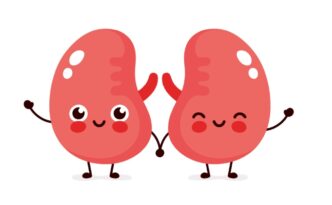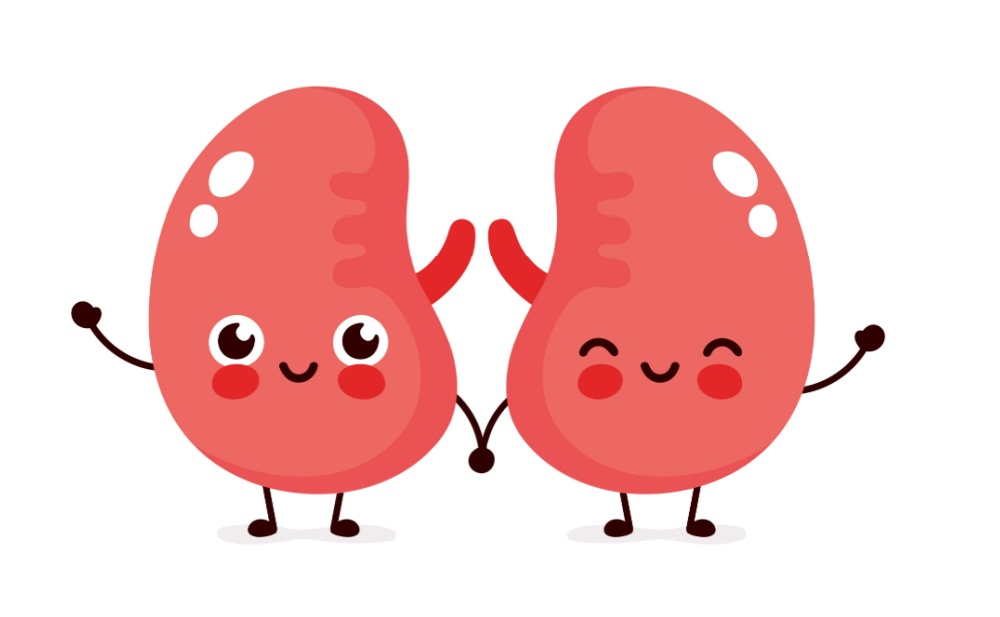Dr Wan Jazilah Wan Ismail Head of Paediatric Department, Hospital Selayang
World Kidney Day is celebrated on the second Thursday of March every year. This year’s theme is particularly close to consultant paediatric nephrologist Dr Wan Jazilah Wan Ismail’s heart, because for the first time since World Kidney Day was conceptualised, the focus is on children.
WHEN A CHILD HAS KIDNEY DISEASE
For most parents, discovering that their child has kidney disease can be a terrifying notion. Dr Wan Jazilah reassures these parents that, today, there are available treatments to help allow these children to lead fairly healthy and normal lives.
But parents do not have to rush into a treatment plan, she adds. “Normally, I will first explain the child’s condition and the treatment options available. If the test results show that there is still time for the parents to go home and think about these options, I would advise them to do so.”
Parents can take this time to research or even seek a second opinion, to give them confidence that they are doing the right thing as they embark on the road to treat the child. It will most likely be a bumpy road ahead for all parties involved, but the healthcare team would be there, to provide treatment as well as advice and emotional support.
Some parents and their children may not be so fortunate when it comes to time. Dr Wan Jazilah sighs softly as she thinks back to those times when she had to inform parents that their child’s kidneys were failing and the child would require dialysis.
“But I will still try to give the parents time to collect themselves. They are already stressed – some of them may have traveled a long way from hospital to hospital, and now I have to tell them that their child needs dialysis,” she says. No, it never becomes easier no matter how often she has these conversations with her patients’ parents. Still, she will give them time whenever possible, because she needs both the parents to be with her when it comes to helping their child heal.
YES, IT MAY HURT, SOMETIMES A LOT
Children tend to be more sensitive to pain, so they need plenty of emotional comfort and support, often more than adults, throughout treatment. “We tend to be both doctors and counselors sometimes,” says Dr Wan Jazilah with a smile, “as we provide treatment as well as emotional support to both our patients and their parents!”
Because pain can potentially leave lingering trauma in a child’s mind, she thinks long and hard, weighing the advantages and disadvantages of each option, when devising treatment plans for her young patients. However, this may mean that some treatments which are effective for adults, or certain children, may not be suitable for another child.
“Often, we have to adapt and make necessary changes to our treatment plans,” explains Dr Wan Jazilah. “Everything may seem clear cut in medical textbooks, but real life is different, it is never so straightforward. I may be faced with a child who is in so much pain after the last treatment, so I have to reconsider the options if I know that the next recommended step will also cause pain.”
WORKING TOGETHER FOR THE CHILD’S RECOVERY
Perhaps the most comforting assurance for these parents is that the healthcare team will be there by their side for the long haul. Personally, Dr Wan Jazilah will be happy to continue to care for and evaluate the treatment progress of her young charges all the way until they turn 18. She will not transfer out her young charges after they receive their identity card (about 12 years old), unless it is a request from the parents, naturally.
This way, the child will continue to receive treatment with minimal disruption. For the child, there is comfort in continuing to see a doctor whom he or she has become comfortable with, and the parents would also find some peace of mind in knowing that their child is under the care of a trusted doctor who understands the child’s medical history as well as his or her whims and moods.
THE HEALING JOURNEY
Dr Wan Jazilah Wan Ismail gives honest insight into the ups and downs of medicating children with kidney diseases.
There are many types of kidney diseases, so we do not have the space to describe all the available medications in this article. Regardless of the type of medications prescribed, most parents will always have questions and concerns. Dr Wan Jazilah will address some of the more common concerns.
WHAT ARE THESE MEDICATIONS FOR?
Depending on the type of disease they address, medications work either by reversing damage caused by the disease, or they slow down the damage.
Dr Wan Jazilah points out that most of the medications available today to treat kidney problems have been tested on adults but there is a lack of information to support their use in children.
“Take blood pressure medication for example,” she says. Kidney problems can sometimes raise blood pressure, possibly causing organ damage and the incurable chronic kidney disease. “There are many new drugs available to treat blood pressure, but there are no studies conducted to determine whether they are safe to be used by children. As a result, I do not dare to prescribe the newer drugs to my young patients, as I fear that there is a possibility that these medications can affect their brain development. So, my options to treat high blood pressure remain small.”
Nonetheless, things are not as bleak as they may seem. With their expertise and knowledge, paediatric nephrologists will tailor the types of medications and their dosages to meet their young charges’ needs without compromising their developmental process. The journey is not always smooth sailing, but it has brought healing to many young children with kidney problems in this country.
WILL MY CHILD REQUIRE ADDITIONAL TESTS OR HOSPITAL STAYS?
Dr Wan Jazilah shares that it is common for children with kidney disease to have their blood samples taken to evaluate the progress of treatment. Depending on the child’s health status and the nature of the disease, other tests may be required, to an extent that the child may need to stay in the ward for a period of time.
A certain degree of disruption to the child’s schedule is unavoidable, but Dr Wan Jazilah personally tries not to admit the child or disrupt his or her routine as much as possible.
There are parents who may wish to restrict their child’s activities (such as playing sports) out of concern for the child’s health. Dr Wan Jazilah, however, prefers to let the child try what he or she wants to do first, and both the parents and the healthcare team can make any necessary adjustments to the child’s routine based on the child’s ability to perform these activities.
WHAT HAPPENS WHEN THE MEDICATIONS DON’T WORK?
Unfortunately, there is a small possibility that a child may not respond well to prescribed medications.
When this happens, the paediatric nephrologist will take a step-wise approach, going down a list of appropriate medication options to select the next most suitable medication(s). Going down the list, the choice of medications becomes increasingly potent, more fraught with side effects and also more expensive.
“It all comes down to a balancing act,” Dr Wan Jazilah says. “We have to evaluate the benefits versus the risks very carefully, with the child’s safety always the top priority.”
She adds, “We will explain to the parents about the benefits of this stronger or more potent medication, as well as the potential side effects. It’s not an easy situation. On one hand, we want to treat the child but on the other hand, there may be side effects that will not go down well. The parents must agree before we can proceed with the stronger medication.”
WHAT IF THE COST OF MEDICATION IS TOO HIGH FOR MY FAMILY?
Dr Wan Jazilah advises parents concerned about the cost of medication to consider sending their child to a government hospital, as medication is always free of charge there.
IMPORTANT TIPS FOR PARENTS
- Children will never take their medications in front of their school friends, so make sure that your child takes his or her medications before going to school.
- Some children may try to throw away their pills when their parents are not watching, so supervise your child and make sure that you see him or her take those medications.
- Therefore, the best time for the child to take his or her medications would be in the morning (before school) and in the evening – times when someone would be at home to supervise the taking of these medications.
- Next month, join us as Dr Wan Jazilah touches on the treatment options available for more serious cases: kidney transplant and dialysis.
”Sleepyhead, close your eyes, for I’m right beside you.
Guardian angels are near, so sleep without fear.”
Johannes Brahms, The Cradle Song









